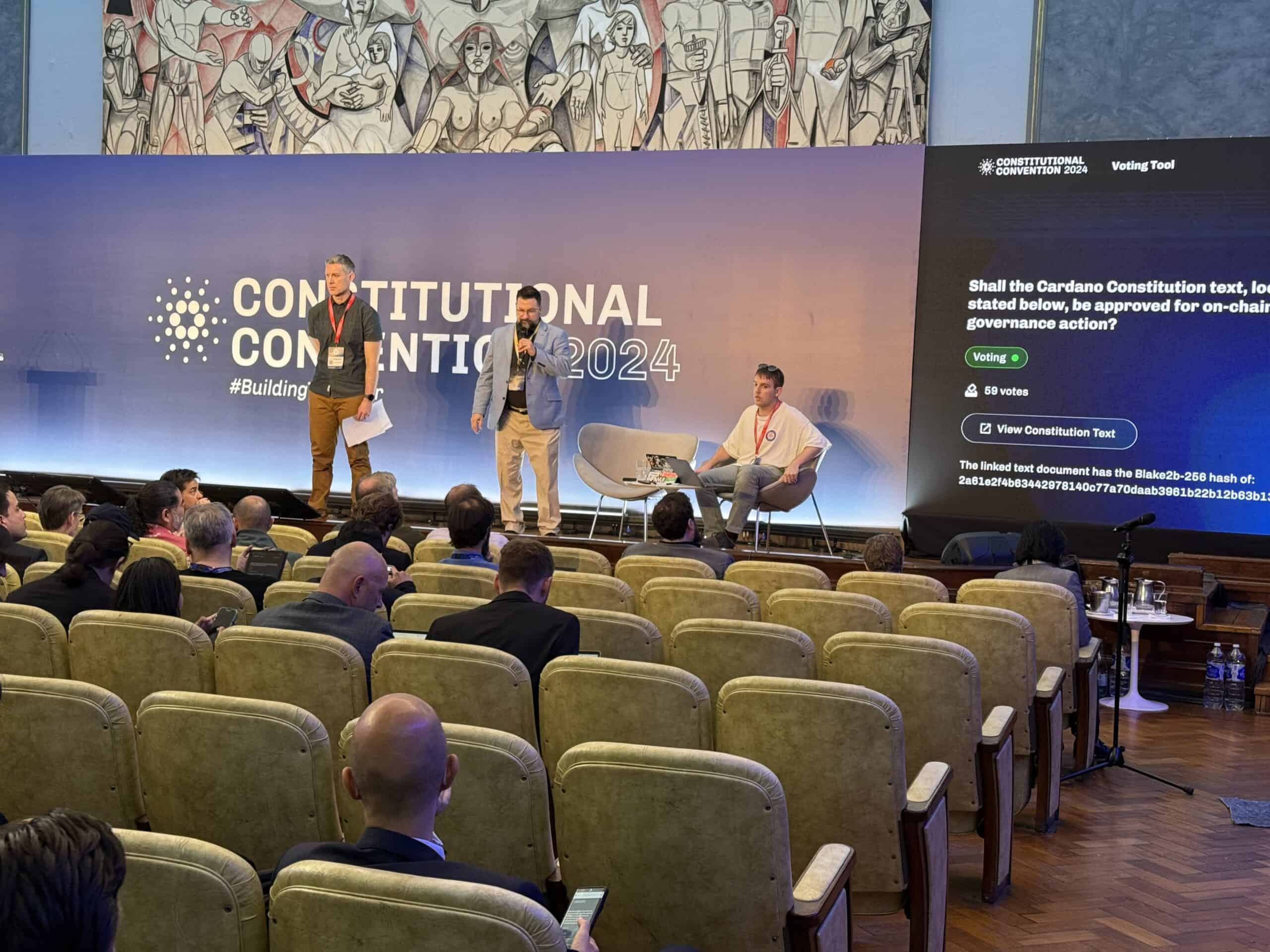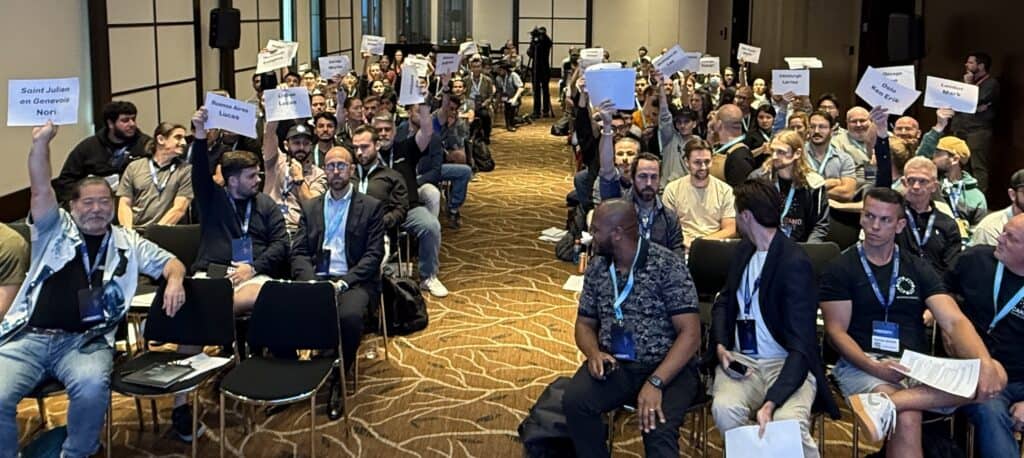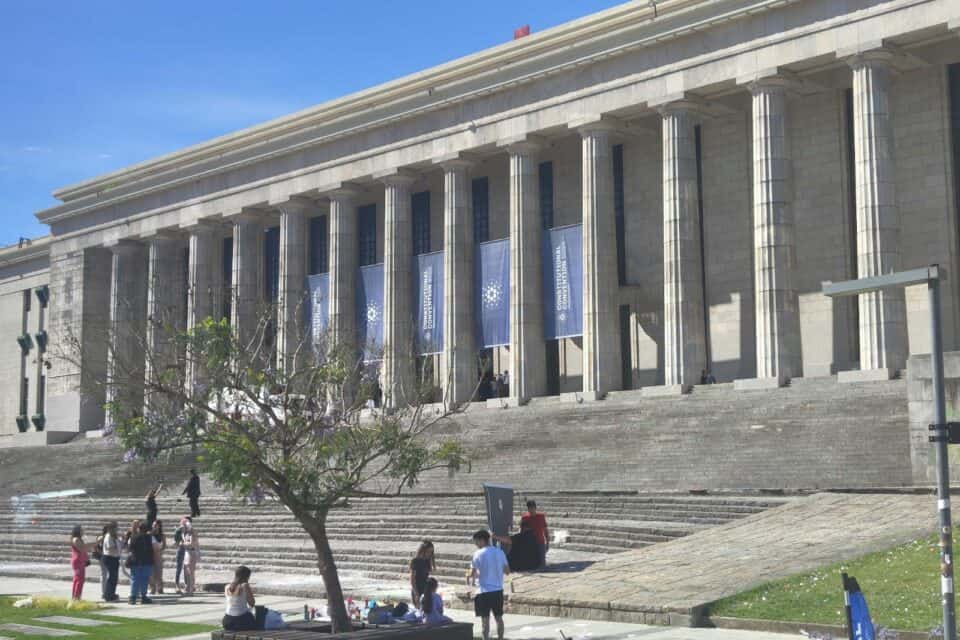Table of contents
Decentralized Autonomous Organizations (DAOs) rely on the active participation and engagement of their members in order to operate successfully, but facilitating a high level of community participation can be a challenge. As experienced facilitators, we’ve gathered the unique insights needed in order to effectively build community and activate long-term engagement from members.
These takeaways also come from decentralized communities that may not qualify as true DAOs, such as blockchain ecosystems like Cardano, which recently celebrated a successful constitutional creation process thanks to their active participation in their community.
Participation Challenge in DAOs
As fully autonomous organizations without centralized authorities, Decentralized Autonomous Organizations (DAOs) use blockchain smart contracts to operate in an automated, decentralized manner. In order to make critical decisions and plan for the future, DAOs must rely on the active participation and collective effort of their members—and getting members to participate can be an ongoing challenge.
The participation challenge in DAOs crops up when it comes to essential functions like voting on proposals, staking, delegation, and discussions, with active community participation needed in order for the DAO or cryptocurrency to have successful operations and governance.
DAOs can suffer from the “free rider problem,” where community members who do not actively participate in governance and operations still benefit from efficient operations and growth. The free rider problem can compound with voter apathy and uninformed voting, which involves token holders voting blindly.

Token-Based Governance in DAOs
The most common form of DAO governance is token-based, involving the issuance of digital tokens which represent voting power, and those token holders become the participants in DAO operations, decision-making, and governance. For decentralized organizations, these tokens are more than just digital assets—they are the lifeblood of the blockchain.
Role of Tokenomics
For cryptocurrency DAOs with token-based governance models, tokenomics encompasses the economic framework of a token system on the blockchain, including token distribution and token utility. Effective tokenomics is closely tied to active participation of community members and overall success of the DAO or cryptocurrency.
To improve engagement and facilitate community participation, DAOs can review the state of their tokenomics, including these crucial factors:
- Token Distribution: DAOs disseminate tokens through mechanisms like Initial Coin Offerings, mining, and airdrops but should prioritize fair and equitable allocation to prevent a concentration of power in one group.
- Token Supply: The supply and demand of tokens in DAOs has a significant impact on its market value and should be managed with proper future modeling in mind.
- Token Utility: The specific functions of a token are unique to that DAO, often representing cryptocurrency, voting power, or ownership stakes.
- Incentives: DAOs should have effective mechanisms to encourage active participation and engagement from token holders.
In a tokenized blockchain network, tokens are representation. Effective tokenomics promotes a shared sense of responsibility and supports a decentralized distribution of power. There’s no one recipe for success when it comes to managing the token economy in a blockchain, but, by prioritizing its effectiveness, stakeholders can build a community of active participants.
For some blockchain systems, active participation is tied closely to the consensus mechanisms in their Proof of Stake (PoS) models. Delegation can be implemented to create a representative system, with the option of liquid democracy allowing for fully flexible delegation of voting power.
Alternative DAO Governance Models
Not all DAOs use token-based governance models, with reputation-based governance models and hybrid models offering alternative options. Reputation-based governance models utilize blockchain mechanisms to calculate the contributions of members, and that calculation determines the voting power of the members. Hybrid governance combines aspects of both token-based and reputation-based governance.
Reputation-based governance is used successfully by DeFi DAO Colony. The members of Colony who are most active and engaged have the most voting power through their reputation, which cannot be bought or sold. While this type of DAO governance supports an engaged community, DAOs that use reputation systems may still benefit from facilitation techniques that encourage active community participation on all levels.
Additionally, many entities in the Web3 space utilize a decentralized organizational framework without meeting the true definition of a Decentralized Autonomous Organization, and those groups may also struggle to overcome the same participation problems as DAOs.
How to Improve Member Participation in DAOs
Any member of a DAO can help spark increased community participation and overcome voter apathy by focusing on a few key pillars of the organization.
Transparency
DAOs are inherently dispersed and decentralized, which can make it challenging to ensure transparent, clear communication channels. That communication and transparency is necessary, though, to keep members aware of current and upcoming proposals and other important voting opportunities.
Members may have different levels of understanding when it comes to the structure and operations of the DAO, so increased transparency provides the opportunity to educate these members. Knowledgeable members have a better understanding of the “skin in the game” they have as a part of the organization.
Incentives
Tokens can be offered as a useful incentive mechanism for DAOs, although these “tokenomics” need to be thoughtfully planned and implemented in order to ensure appropriate utility, supply, security, and engagement.
Examples of common token-based incentives and DAO functions include:
- Reward Structures: Community members can earn more tokens as a reward for their voting, engagement, proposals, and other types of participation.
- Token-based Voting: Tokens give users voting rights, which can take the form of a one-person, one-vote system or a vote-per-token system.
- Staking Mechanisms: Token holders can stake their tokens with the network or a designated delegate, which provides more stability for the network and is important to proof-of-stake (PoS) consensus algorithms.
- Asset Access: Tokens may grant users access to exclusive tools, products, or other digital assets.
- Revenue Sharing: Distribution of profit may be determined partially or wholly by tokens, contributions, or other metrics.
Alternatively, DAOs can use reputation-based incentives to encourage active community participation from DAO members. Reputation mechanisms offer a measurement of a member’s expertise, influence, or engagement within the blockchain.
Events
The automated nature of smart contracts and blockchain technology allows for streamlined, 24/7 operations for many DAOs. By implementing dedicated remote, hybrid, and in-person events, DAOs can increase member participation and generate excitement. These events may take the form of collaborative sessions like town halls and workshops, large gatherings like summits, and informal networking opportunities for interest groups.

In order to optimize participation at DAO and Web3 events, organizations can partner with certified facilitators, such as alumni from Voltage Control. This type of dedicated facilitation can be particularly helpful for collaborative exercises like developing governance documents, which was recently demonstrated by the work of Cardano and Voltage Control to develop Cardano’s governing constitution.
Case Study: Cardano Constitutional Convention
In December 2024, Voltage Control facilitated the Cardano Constitutional Convention as a simultaneous in-person event in Buenos Aires, Argentina, and Nairobi, Kenya, with additional remote participants from around the world. Facilitators had to assist the blockchain’s members as they came together from differing backgrounds and opinions in order to finalize the most important document for the future of their network—which they did successfully, with the Cardano Constitution eventually receiving 85% on-chain approval.
The event came after two years of development and six months of facilitated workshops around the world in order to draft the blockchain’s governing document, which would be the first of its kind. Those global workshops, which included both in-person and remote Community Workshops and Delegate Synthesis Workshops, provided invaluable feedback on the constitution delivered on a line-by-line basis.
Certified facilitators ensured that these day-long workshops did not get stuck or become adversarial, allowing participants to be heard and feel like empowered decision-makers in a decentralized organization. Facilitators had to be highly adaptable based on the needs of each workshop’s attendees, adjusting to cultural norms and local demands while making the one-day event successful.
At the Cardano Constitutional Convention, the facilitators were more important than ever, serving as an essential liaison between the two locations and remote attendees while providing the support to keep the process of drafting a finalized constitution moving forward. In total, 450 attendees and 63 elected delegates representing 50 countries partook in the three-day event—and it was a huge success.
Cardano Co-founder Charles Hoskinson identified how participants built strong connections with one another, explaining, “They’ve made lifelong friends and those delegates that went to the Constitutional Convention, they’re still talking to each other.”
These connections encourage continued engagement with the Cardano project, and this monumental event only marks the beginning of the community’s journey. In February 2025, the Cardano Constitution had been ratified on-chain with an 85% approval rate, well above the required 75% approval rate. Cardano became the first truly decentralized blockchain with a community-run governance model, made possible by its engaged, active community of participants.
Certified Facilitators with Web3 and DAO Experience
DAOs commonly face the challenges of voter apathy and waning community participation, but these organizations don’t have to tackle these obstacles alone. By partnering with facilitators like the team at Voltage Control, DAOs can design and implement actionable plans for events and projects that result in an engaged, enthusiastic membership.
Every DAO and Web3 organization is unique in its build and operation, but all of these organizations are founded on the participation of community members, often with those participants spread around the globe. DAOs can hugely benefit from partnering with a professional facilitation team like Voltage Control to achieve active community participation and collaborative success.
All facilitators at the Cardano Constitutional Convention had obtained their Facilitation Certification from Voltage Control. The Facilitation Certification program is aligned with International Association of Facilitators (IAF) competencies, and it builds the foundational facilitation skills needed to successfully transform meetings, drive change, and inspire innovation, skills which have become instrumental when it comes to DAO operations and facilitation.
To work with Voltage Control on your Web3 or DAO project, contact our team today. To learn more about the facilitation of Cardano’s constitution, read our complete case study here.


